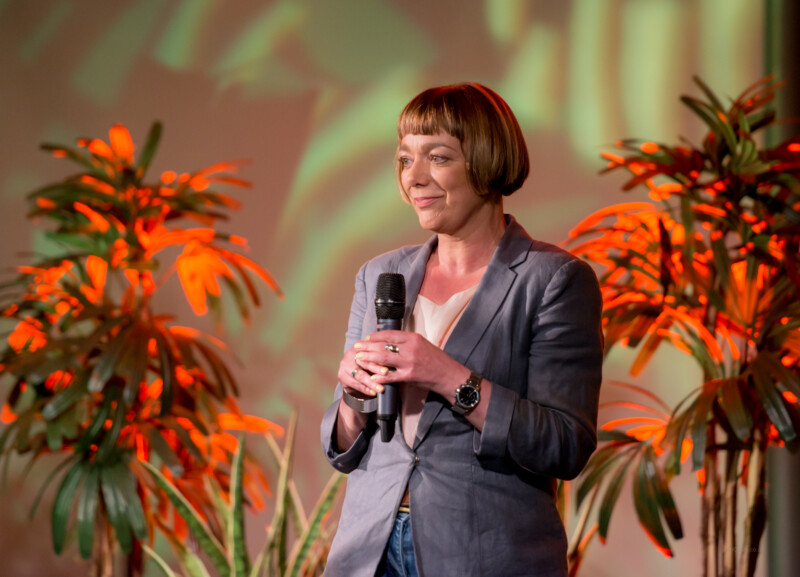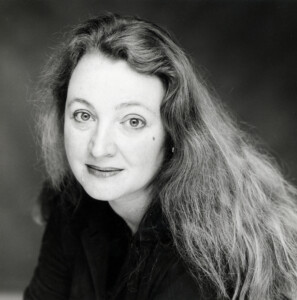Of Genomes, Genius and Jenkinson or How I Gained a Film Education, by Estella Tincknell

Share this
As a lecturer in Film Studies at the University of the West of England, I spend much of my life thinking about and analysing films.
At times this can lead to frustration with my students’ responses to a film I have long cherished or, conversely, one I have included on the syllabus out of duty which I personally dislike but which students adore. The thing I never tire of or find remotely frustrating, however, is conveying my general love of film to my students. But I am increasingly aware of the way streaming and downloading are a way of life for them; films can be readily accessed at the press of a button, and can be paused, rewatched, skipped through, at whim. When I remind them (and they know this, but they don’t really know it) that at their age I was almost entirely reliant for feeding my film hunger on television schedules and trips to faded city-centre Odeons, the shabby relics of the pre-multiplex picture palaces, they are faintly incredulous. They take access to films for granted – quite understandably.
However, this plenitude is not all it seems. Despite the widespread availability of on-demand films, the range offered is largely Hollywood-dominated. Indeed, the system algorithms are set up to keep giving us more of the same rather than offering us genuine breadth. This means that many of my students have never encountered some of the films I found culturally and intellectually transformative and uplifting as an emergent film aficionado in my teens and early twenties. This is not through any fault in themselves, but rather because the systems they use have narrowed not broadened what is available.
When thinking about this, then, I am often struck not only by my good fortune in teaching something I love, but also by the relatively serendipitous process by which I ended up doing it. Unlike most of my students, I did not study film at school, nor did I have an inkling that it was possible to do so at university. Indeed, it generally wasn’t in the 1970s. Film Studies as an academic discipline was in its infancy. For someone growing up on a Somerset council estate and attending the local rural comprehensive school, where simply going to college was a significant aspiration, the idea of studying film was unimaginable. Nobody at my school (bar the odd English teacher, as I recall) discussed film as an art form very much at all. My parents were anxious for me to get a qualification in something ‘practical’, so I ended up doing a sandwich course in Librarianship at what was then Birmingham Polytechnic, and only found my way into Film Studies much later.
That doesn’t mean I didn’t set out to educate myself in cinema as a teenager. I sought out books about film and requested them as birthday and Christmas presents. These were largely glossy popular histories which nonetheless opened this world up to me; one particular favourite was a book about film musicals by John Kobal, whose stills from 1930s Mae West comedies and insider knowledge about Judy Garland fascinated me. Notwithstanding these autodidactic attempts, however, the cultural institution I really have to thank for my early film education is not publishing, it’s the BBC. Let me explain.
I wasn’t only fascinated by films as a child and teenager, I was also intrigued by television and radio – by the phenomenon of ‘mass media’. I wanted to know what producers, directors and editors did; why it was called a ‘screenplay’ not a script; what the differences were between an adaptation and an abridgement. I was alert to the nuances, curious about the hierarchies and distinctions. The primary source for my nascent knowledge was the weekly BBC listings magazine, Radio Times. Fortunately, my parents had it delivered each week, and the following week’s issue always arrived on Monday. As soon as I got home from school at four o’clock on Monday afternoon, I would settle down to pore over it.
Philip Jenkinson’s film review columns introduced me to classical Hollywood: to the RKO Astaire and Rogers musicals, to post-war film noir, to westerns (which I initially had no interest in but grew to appreciate) and to melodrama. The reviews were intended to evaluate rather than educate, but I was also absorbed by the more arcane information they proffered. Jenkinson casually deployed the eccentric vernacular of the film buff, using terms originally coined by Variety to describe genres or stars (‘oaters’, ‘hoofers’). Gaining access to this specialised language and to information about directors I had then never heard of (John Huston, Orson Welles), or to obscure stars from the 1950s whose careers had briefly flared then faded, gave me a pleasing sense of expertise. I gobbled down all this knowledge and stored it up for the future alongside a growing understanding of the cultural hierarchies involved. Initially, my interest lay with plot-heavy thrillers and mysteries (I never much cared for romance, being of a cynical disposition); later I began to be intrigued by the nature of film itself – its variability and richness – and especially by films which had no plot to speak of, but which were nonetheless clearly pregnant with meaning. The Radio Times thus not only inculcated knowledge, it also educated my taste.
I began to seek out specific films described in Jenkinson’s column, and to request that we watched them, often at times my parents regarded as faintly scandalous, such as Saturday afternoons. The fact that I had to ask permission reminds me, too, that there was one television set in the house and that its place in the family sitting room meant access had to be negotiated. The three o’clock matinee was where I discovered the splendours of Old Hollywood and its impossibly glamorous stars: Dietrich, Hayworth, Miller. And BBC2 was essential to my encounters with European cinema. I have powerful memories of watching French and Italian films by myself at night on BBC2, my parents having retired for the evening. And yet I had almost persuaded myself these memories were figments. The concept of a mainstream television channel screening foreign-language films in prime-time weekend slots now seems implausible. Perhaps I had simply retrofitted my memory to suit a narrative of prodigal intellectualism?
Yet thanks to the BBC’s recently launched Genome archive, which is available online and gives access to every Radio Times listing since the 1920s, I find my recollection to be pretty accurate. I’m sure I remember watching Mouchette (Robert Bresson, 1967) when it was screened as part of BBC2’s World Cinema series on a Friday in 1973, for example. And, on checking the Genome archive, I see I probably first encountered Fellini’s La Dolce Vita (1960) in the same nine o’clock slot on Friday 3 May 1974. I doubtless followed this the next day with the Saturday Musical, which on 4 May 1974 was Painting the Clouds with Sunshine (David Butler, 1951), a somewhat weak Warner Brothers effort starring the now largely forgotten Dennis Morgan.
I would never have been exposed to classical Hollywood or to the French New Wave, to Fellini and Bergman, and, yes, to weakly-plotted musicals, formulaic thrillers, or even British B-pictures, if it hadn’t been for the BBC and for the fact that there were only three television channels to choose from, one of which had an explicit policy of offering ‘highbrow’ fare. Whilst filling afternoon schedules with old movies was clearly in part about convenience and cheapness, the consequences were to open an infinitely rich world of popular cinema to a teenager who would not otherwise have had access to it. Perhaps more importantly, the BBC’s commitment in the 1970s to screening films made by some of the greatest directors on Friday nights in an accessible timeslot on BBC2 (and followed, incidentally, by a magazine arts programme) meant I got to see films I had never heard of but knew I needed to watch. That’s the important thing, really. It was these almost serendipitous but mind-expanding encounters that were so important. And that’s the experience my students don’t really have any more.
So, this essay is really not just about me and films. It’s also about the importance of the BBC and the concept of public-service television. While many undermine or scoff at the Reithian ideals that underpin public-service broadcasting in the United Kingdom, and point to the wonders of Netflix, Amazon and streaming as the way forward, I know differently. You see, for a girl growing up on a council estate in Somerset the BBC provided – to use a contemporary term – a portal into a realm of cinema that nobody else had told me about. It offered me access to the kind of culture that wasn’t on the school curriculum and which I would not have encountered elsewhere. There really were some people who knew better than me and made it their business to educate and inform me. For that, I am grateful, and keep telling my students so.
Estella Tincknell is Associate Professor in Film and Culture at UWE Bristol. She has been a Bristol City councillor since 2013 and was Deputy Mayor and Cabinet Member for Culture and Equalities from 2016 to 2017.



